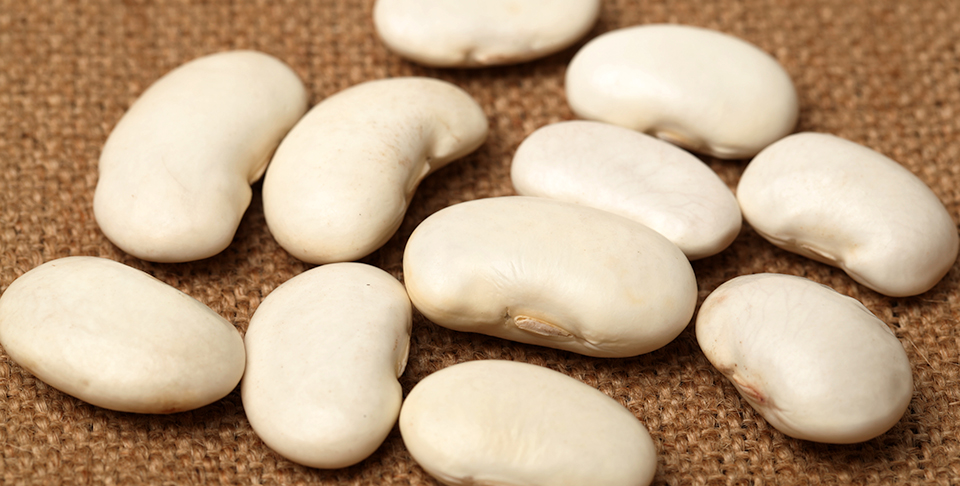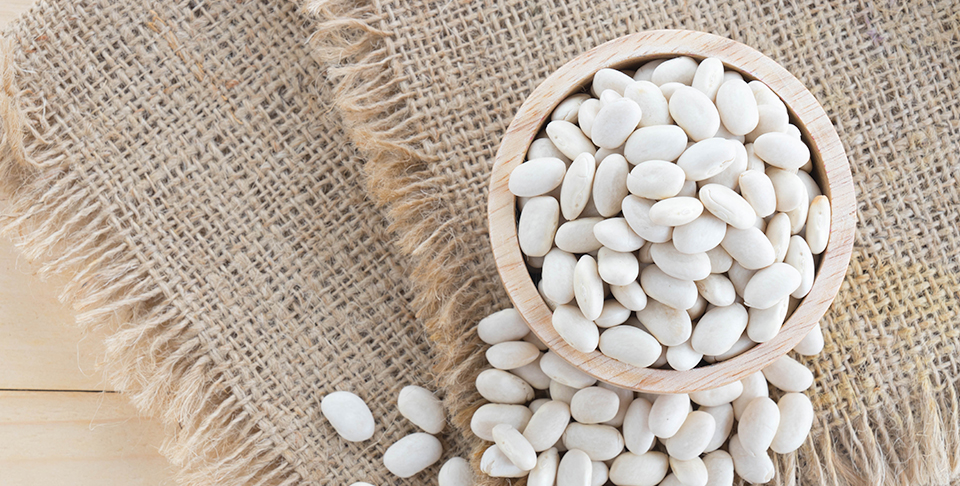Free Shipping - 48hrs Only | Use Code: FREESHIP
Ends 26/04 11:59PM AEST Min spend $79
Quick Summary
- Known as 'Phaseolus vulgaris,' these beans are a nutrient-rich member of the legume family, offering numerous health benefits due to their high content of protein, fibre, & essential vitamins and minerals.
- Initially from the South Americas, white kidney beans have spread globally, with major production in countries like India, China, & the United States, attributed to their nutritional value & versatility in preparation.
- These beans promote health through nutrients that are vital for various bodily functions, aiding in digestion due to their high fibre content, & serving as a significant plant-based protein source.
- Containing 'phaseolamin,' white kidney beans inhibit calorie intake from carbohydrates, assisting in weight control.
- The high fibre, folate, magnesium, & potassium content in white kidney beans contribute to heart health by lowering cholesterol, regulating blood pressure, & reducing homocysteine levels.
- Consumption is mostly safe, but side effects can include digestive issues &, if not properly cooked, toxicity due to lectins.
- Individuals with health conditions or on medication should seek professional consultation before consumption.
- For effective results, especially in weight management, white kidney beans or their extract should be consumed in recommended portions before meals, adhering to guidelines for dietary balance & supplement instructions.
- White kidney bean extracts are available as supplements for weight loss, known as carb-blockers.
Introduction
In the realm of health foods, white kidney beans have carved a unique place. Their multipronged benefits, ranging from weight loss assistance to promoting heart health, make them a popular choice among health enthusiasts.
This comprehensive guide aims to cover everything you need to know about white kidney beans, including their origin, benefits, recommended dosages, potential side effects, & availability in supplement form.
What are White Kidney Beans
White kidney beans, known scientifically as 'Phaseolus vulgaris,' are a variant of the common bean that is named for their large, kidney-shaped form with a square appearance & white, creamy flesh.
They are part of the legume family & are often referred to as cannellini beans. These beans are a nutritional powerhouse, high in protein, fibre, & a multitude of vitamins & minerals, thereby offering numerous health benefits.
Where Do White Kidney Beans Come From
White kidney beans have a history that traces back thousands of years. Originally domesticated in the South Americas, they became a staple in European diets after being introduced across the Atlantic.
Today, they are cultivated worldwide, with the leading producers including India, China, Indonesia, Brazil, & the United States. The versatility in preparation and inherent nutritional profile have contributed to their widespread popularity.
White Kidney Beans: General Benefits
The nutritional composition of white kidney beans provides a host of health benefits. They are low in fat while high in soluble fibre, protein, iron, magnesium, & folate, essential for various bodily functions. The fibre content enhances digestive health, helping maintain regular bowel movements & prevent digestive disorders.
Additionally, white kidney beans are an excellent plant-based protein source, making them a crucial dietary inclusion, particularly for vegetarians and vegans. Beans are full of fibre, vitamins, & minerals. They are also a good source of vegetable protein while also being low in fat.
White Kidney Beans: Benefits for Weight and Fat Loss
One of the most significant health benefits of white kidney beans is their potential to assist with weight and fat loss. The presence of a compound known as 'phaseolamin' is particularly noteworthy; it is an inhibitor of the enzyme alpha-amylase, which converts carbohydrates into sugar.
By blocking this process, white kidney beans may prevent carbohydrate absorption, resulting in lesser calorie intake & reduced body weight.
Additionally, the high fibre content contributes to a feeling of fullness, which can prevent overeating.
There have been some studies that show the benefits of white kidney beans in weight loss. When human subjects were given 445 mg of a white bean extract per day for 30 days, it was found that they lost significantly more weight and fat compared to those receiving a placebo. Furthermore, weight loss occurs with the maintenance of lean mass (Celleno et al, 2007).
White Kidney Beans: Benefits for Heart Health
The health advantages of white kidney beans extend prominently to the heart. The beans’ high fibre content is known to lower blood cholesterol levels, a significant risk factor for heart disease.
They contain significant amounts of folate, magnesium, and potassium, all known for their cardiovascular benefits. Folate reduces the level of homocysteine, an amino acid linked to heart attacks & strokes, while magnesium & potassium help regulate blood pressure.
White Kidney Bean Negatives and Side Effects
While white kidney beans are safe for most people, they are not without negatives & potential side effects. Consuming them can lead to digestive discomforts, such as gas & bloating, due to their high fibre content.
Additionally, raw white kidney beans contain lectins, & proteins that can be toxic in high amounts, but cooking the beans thoroughly eliminates this risk.
It’s essential for individuals with specific health conditions or those currently on medication to consult with a healthcare professional before incorporating high amounts of white kidney beans or any supplement into their diet.
White Kidney Bean Recommended Doses and Ingredient Timing
Incorporating white kidney beans into one’s diet requires knowledge of recommended dosages & timing. As a food source, there's flexibility in the amount one can consume, though portion control is advisable to maintain a balanced diet.
For weight management, consuming a standard serving about 30 minutes before a carbohydrate-rich meal can help reduce the caloric impact.
In supplement form, guidelines typically recommend 500 to 1500 mg of white kidney bean extract daily, taken before meals to maximize the digestive benefits, though it's always prudent to follow specific product directions.
White Kidney Bean Supplements
Given the health benefits of white kidney beans, they are also available in supplement form, often marketed as starch or carb-blockers. These supplements contain concentrated white kidney bean extract & are popular within the weight loss market.
They can also be found in some fat-loss proteins, fat-burners, & other weight-loss supplements. When looking for white kidney bean supplements, also be sure to keep an eye out for its other names, cannellini bean & Phaseolus vulgaris.
Conclusion
White kidney beans are more than just a dietary staple; they are an integral component in health-promoting diets, especially pertinent for weight management and heart health. Their benefits extend beyond basic nutrition, providing a natural approach to maintaining a healthy lifestyle.
However, mindful consumption is necessary, & professional advice is recommended to maximise their benefits safely. Whether incorporated through whole-food recipes or health supplements, white kidney beans represent a natural powerhouse capable of contributing significantly to our overall health & well-being.
References
Celleno et al (2007), A Dietary Supplement Containing Standardized Phaseolus vulgaris Extract Influences Body Composition of Overweight Men and Women. Int J Med Sci, 4: 45-52
Chokshi (2006), Toxicity Studies of Blockal, a Dietary Supplement Containing Phase 2 Starch Neutralizer (Phase 2), a Standardized Extract of the Common White Kidney Bean (Phaseolus vulgaris). International Journal of Toxicology, 25: 361-371
Chokshi (2007), Subchronic oral toxicity of a standardized white kidney bean (Phaseolusvulgaris) extract in rats. Food and Chemical Toxicology, 45: 32-40
Fantini et al (2009), Reducing Effect of a Phaseolus vulgaris Dry Extract on Food Intake, Body Weight, and Glycemia in Rats. J Agri Food Chem, 57: 9316-9323
Santimone et al (2004), Porcine pancreatic al-pha-amylase inhibition by the kidney bean (Phaseolus vulgaris ) inhibitor (Alpha-AII) and structural changes in the al-pha-amylase inhibitor complex. Biochim Biophys Acta,1696: 181-190.
Udani et al (2004), Blocking Carbohydrate Absorption and Weight Loss: A Clinical Trial Using Phase 2™ Brand Proprietary Fractionated White Bean Extract. Altern Med Rev, 9: 63-69



